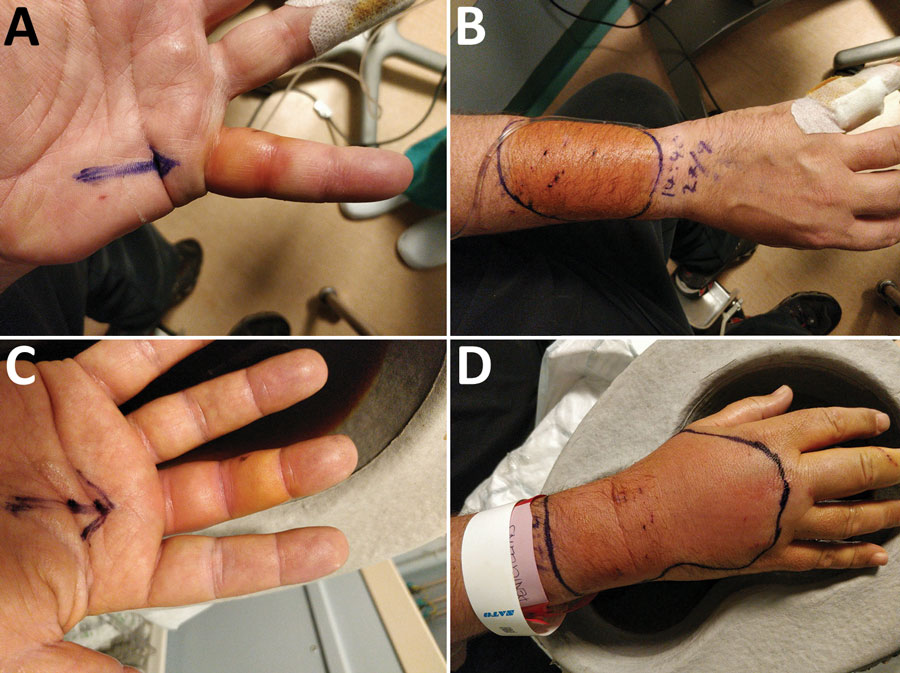As much as we may love them, cats are major reservoirs of zoonotic infections, and their bites and scratches can pose a serious threat to our health. It’s a sad truth that one UK-based man found out the hard way after he was bitten by a stray cat and contracted an extensive soft tissue infection caused by a species of bacteria that had never been described before.
A case report describing the incident details how, back in 2020, the 48-year-old man turned up at the emergency department presenting with a painful, swollen hand. Eight hours earlier, he had been bitten several times by a feral cat. Doctors initially cleaned and dressed the man’s wounds, before giving him a tetanus shot and sending him on his way with a course of antibiotics.
However, within 24 hours he was back, with an intensifying infection in his left little and right middle fingers, as well as both forearms. Again, the area was cleaned, and this time, the damaged tissue was surgically removed and intravenous antibiotics were administered. After five days of oral antibiotics, he made a full recovery.

The man’s infected hands and arms. A) Left little finger, B) right forearm, C) right middle finger, and D) right hand.
Image credit: Jones et al., Emerging Infectious Diseases, 2023 (Public Domain)
A happy ending for the patient, but this was only the beginning of the story. Stumped by what had caused the infection, the man’s doctors set out to identify the mystery pathogen using genome sequencing and biochemical profiling.
What they found was an entirely new species of bacteria that had never been seen before. It belongs to the genus Globicatella – a group of small, gram-positive bacteria that resemble Streptococcus, the pathogen responsible for scarlet fever and strep throat.
This latest addition to the genus is just the third known Globicatella species. It joins G. sanguinis, which can infect humans and has been implicated in a small number of bloodstream, heart, central nervous system, and urinary tract infections, and G. sulfidifaciens, which has not been found to cause human infection.
Full genome sequencing revealed that the new strain is most closely related to G. sulfidifaciens, although the two species differed by just over 20 percent. “[This suggests] a distinct and previously undescribed species,” write the authors of the case report.
“In conclusion, cat bites are common sources of zoonotic infection,” they continue. Previously, cats have been linked to numerous bacterial infections, including pneumonic plague, and are also known to spread other parasites, such as the brain-altering Toxoplasma gondii.
“This report highlights the role of cats as reservoirs of as yet undiscovered bacterial species that have human pathogenic potential,” the authors conclude.
And it’s not just cats we should be wary of – dogs can harbor nasty bacteria too, as can cake-stealing iguanas.
If you’ve been bitten or scratched by a stray cat, or any unfamiliar animal, the Centers for Disease Control and Prevention recommend washing any wounds immediately with soap and water and contacting a healthcare provider.
The case study is published in Emerging Infectious Diseases.
The content of this article is not intended to be a substitute for professional medical advice, diagnosis, or treatment. Always seek the advice of qualified health providers with questions you may have regarding medical conditions.
Source Link: Man Develops Never-Before-Seen Bacterial Infection After Feral Cat Bite